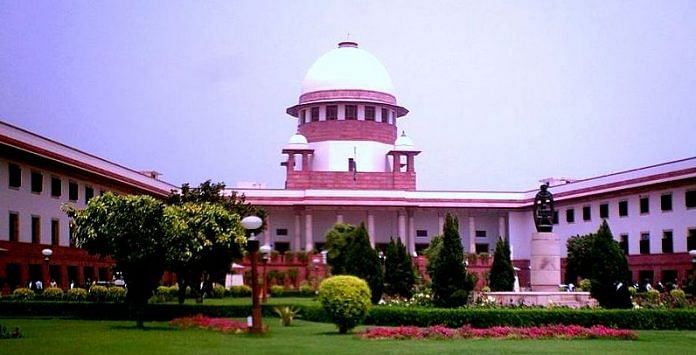The collegium gives the impression that lately, it has been certain of the need to appoint an eminent Bar member and that Joseph was the only other fit person.
In the closing days of the 2017- 18 term the Supreme Court leaves us both elated and depressed. In its constitutionally assigned role of being a watchdog, it has just prevented a fraud on the Constitution by its prompt intervention on the Karnataka issue. But in its self -arrogated role of appointing judges, it has dithered and disappointed.
The government returned the name of justice K.M. Joseph on 26 April.
The collegium met a week later, and adjourned its meeting with a cryptic resolution saying:
“The Collegium met to consider the following Agenda:
To reconsider the case of Justice K.M. Joseph, Chief Justice, Uttarakhand High Court [PHC: Kerala], pursuant to letters dated 26th & 30th April, 2018 received from Ministry of Law & Justice, Government of India and also to consider the names of Judges from Calcutta, Rajasthan, and Telangana & Andhra Pradesh High Courts for elevation as Judges of the Supreme Court, in view of the concept of fair representation.
Deferred.”
In other words, it accepted the government’s view that other names ought to have been sent with justice Joseph’s name.
It met again on 11 May and after much deliberation resolved that “The Chief Justice and other members of the Collegium have, on principle, unanimously agreed that the recommendation for appointment of Mr. Justice K.M. Joseph, Chief Justice, Uttarakhand High Court [PHC: Kerala] as a Judge of the Supreme Court should be reiterated. However, the said reiteration should also be accompanied by the recommendation of the names of Chief Justices of High Courts for elevation as Judges of the Supreme Court, for which detailed discussion is required.
In view of the aforesaid, the meeting stands deferred for being held at 4.15 p.m. on Wednesday, 16th May, 2018.”
On 16 May we waited, with bated breath, expecting to know the collegium’s decision as quickly as we had become accustomed. But that was not to be. The resolution got uploaded only two days later on the 18. It said, “Today, in the meeting of the Collegium, a unanimous view was expressed that there should be further deliberation and broad-based consideration of the names of the Chief Justices as well as Judges of the High Courts which are at present not represented in the Supreme Court. In view of the above, the meeting stands deferred to be held at the earliest.”
We are left wondering when that ‘earliest’ will be, with the likelihood of judges in the collegium going out of town.
On the 10 January, when the collegium sent the two names of justice K.M. Joseph and justice Indu Malhotra there were six vacancies. On 2 May, after justice Indu Malhotra was sworn in, the number of vacancies was again six, and with three more retirements coming up very soon on 4 May (justice Agrawal), 22nd June (justice Chelameswar) and 6 July (justice Goel). And yet it would appear that no other names have been shortlisted since January. The Collegium gives the impression that it has been certain only of two things in the last few months – the need to appoint an eminent member of the Bar and that justice K.M. Joseph was the only other fit person (and that they had not got down to thinking of other names).
This speaks poorly of an institution which has maintained over the last twenty five years that judicial appointments are its sole prerogative. A previous chief justice not very long ago was driven to tears at the government’s intransigence in processing appointments, but here is the collegium now publicly acknowledging that it has not been able to make up its mind. This makes the judiciary lose the high moral ground.
Now the government is going to have the last laugh. It has got a chance to show that the
collegium is an indecisive and inefficient body. The demand for NJAC- II can revive again.
Raju Ramachandran is a senior advocate at the Supreme Court of India.



